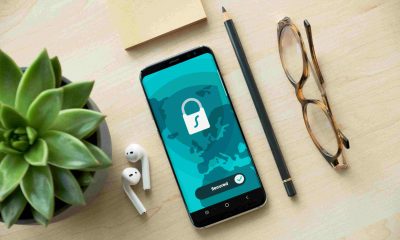If your internet is too slow, before cursing a VPN, you can try these 10 tips and we are sure that they will solve the most common problems associated with a VPN:
Reboot your device
What is the very first step to the solution of any tech issue? Just restart your device! Your system often experiences slowness due to too active process overload or lack of memory. Sometimes, to show off this speed, a quick reboot is enough.
Choose the right VPN
Everyone should understand how important it is to choose the best VPN for comfortable Internet surfing. Today, VPN developers offer a variety of solutions, each of which has its level of reliability and performance. Using a free VPN is not the best option if speed is important to you. Free VPNs, due to the imperfection of the technologies used in them, can slow down your connection much more than paid services (the truth of this statement after testing explained by the review on Surfshark). We advise you to give preference to the VPN, which is known among users as high-speed if you want your Internet to be fast. It is also worth considering the number of servers available to the virtual provider, as you will also have a wide choice of your geolocation. Below we have selected a list of 3 highly recommended VPNs for 2021: ExpressVPN (One of the fastest and multifunctional services available today, 1500 servers worldwide, strong privacy policies). – NordVPN (Excellent speed rating, you can connect up to 6 devices at the same time, DNS leak protection). – Surfshark (Strict “zero logs” policy, Fast connection speed).
Change the location of your virtual server
By choosing a server located closer to your actual geolocation, you can speed up the connection. Usually, this change leads to an increase in performance. Another reason why changing your server is useful is to avoid congestion issues on this connection. View the list of servers offered by your provider and pay attention to the indicators of their current load.
Change the VPN port/protocol
The VPN software uses a specific port number to connect to the servers (port 443). They also use a specific protocol, such as TCP or UDP. Sometimes Internet service providers limit the speed of certain protocols or ports. You can change them until you find the most optimal combination for the fast operation of your Internet.
Restart your modem and router
Your modem and router start to slow down over time. Most of the reason is due to memory leaks, so a simple restart is needed to improve the speed. When the speed in your modem and router is optimal, then your VPN connection will be fast.
Switch to a wired connection
Your wireless connection may be slowing down your Internet speed. This is because they use a common channel that transmits data between multiple devices. This increases the latency and slows down your speeds. If you don’t need to be mobile portable all the time, it’s better to use a wired connection. It provides higher speed and is the preferred option when running a VPN.
Update your access point hardware
Some devices can’t work with high-speed internet. A VPN uses powerful encryption, which requires a lot of resources. Some routers, older Android devices, NAS, or previous-generation iOS devices may be the culprit. If you’re not sure, try a VPN connection on another device to see how it works. You may be surprised.
Try using IKEv2 (IPsec)
Sometimes the OpenVPN connection is limited or restricted. Using IKEv2, you can get faster internet and avoid connection loss.
Consider disabling your security software
We do not suggest going down this path in the long run, but it is useful for diagnosing the problem. Antivirus software and firewalls are notorious for slowing down VPN traffic as they scan and filter outgoing packets. Temporarily disable the software and see how it works. If you find that this is the reason for your lower speed, you may want to consider other options.
Check with your Internet service provider
If you have made the necessary changes, but the problems still occur, you may be having problems with your Internet service provider. Use a VPN from another location, such as a local coffee shop or your neighbor’s house. Measure your speed with this new connection to see if you need to contact your ISP. Take the steps we outlined and increase the speed of your connection! With the right VPN service, high-quality network setup, and modern hardware, you may even find that you don’t notice a difference in speed compared to a normal VPN connection. Thank you for visiting techfollows.com.












